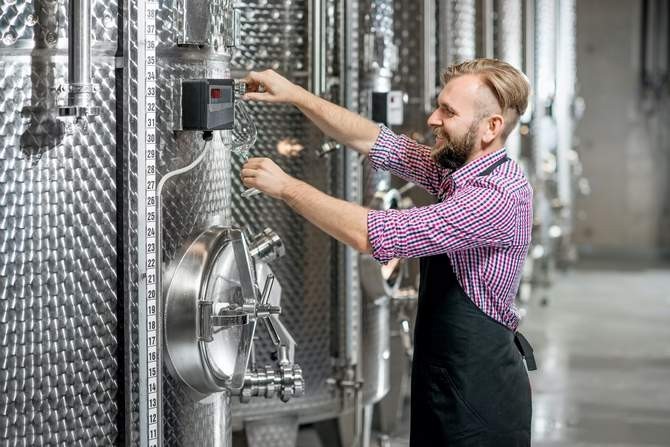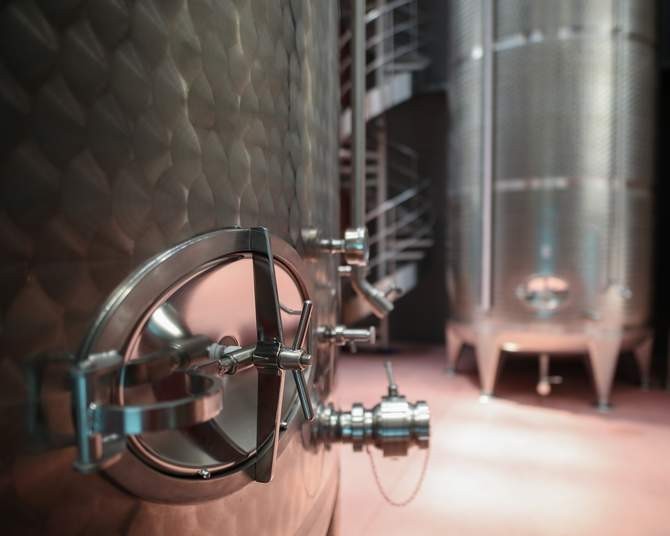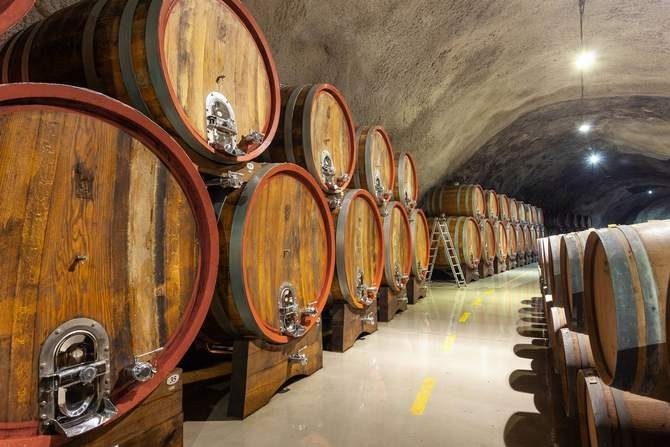Stainless steel vats are the heart of almost every winery – it is difficult to imagine the work of a modern winemaker without them. To ensure their long life and, most importantly, the high quality of the final product (wine), each tank must undergo regular cleaning and maintenance. For this purpose, inspection manways are installed in wine tanks, which significantly facilitate or even enable systematic maintenance work.

The type of manway installed is closely related to the purpose of the wine tank. Indeed, among the tanks used in the winery may be:
Steel fermentation and storage tanks, as the most common wine tanks, are usually equipped with two types of manways:
The round top manway of a fermentation tank is usually a lightweight, non-pressure structure with a diameter of about 400-500 mm. The manway cover very often has a special dedicated area for making an opening and installing a breather valve. The round top manway is usually closed with one or more handwheels that provide pressure on the cover to the frame (manway flange). A gasket is installed between the frame and the manway flange, which, when the cover is pressed down, separates the fluid inside from external factors.
Oval side manways are part of the equipment of wine tanks with a larger diameter and capacity. A side stainless steel manway is usually installed at the bottom of the tank's outer shell, at a height that allows free access to the opening. A distinctive feature of side manways is a cover that opens inward (sometimes with the option to pull outward, for example, for cleaning purposes).
In addition, oval side manway covers are also available in a version that is arched to the diameter of the tank. This solution, due to the lack of protruding parts (mounting frame), provides a highly aesthetically pleasing appearance of the wine tank.

In the case of tanks for the production of sparkling wine , it is necessary to install manways with increased pressure resistance. Tanks used for wine production using the Charmat method are usually characterised by a resistance of about 6 bar, so manways installed in wine pressure vessels should also be resistant to at least the mentioned pressure value.
The most common inspection solution for wine pressure tanks is oval side manways. Indeed, a large part of them can be used in high-pressure conditions, which is a direct result of their design qualities (thicker frame and inward-opening cover). Oval manways are usually mounted in the lower part of the shell, so they are a relatively easy technical access point, in particular for large capacity tanks.
An alternative to oval manways are pressure round manways. Equipped with at least 4 or 6 handwheels, round manways are installed in the roofs of wine tanks. For this reason, they are more likely to be found in smaller wine tanks of about 1,000-2,000 litres (but this is not the rule). Pressure manways are very often subject to PED certification.
Thermally insulated wine tanks are equipped in most cases with an oval side manway. However, this solution requires the installation of additional thermally insulated external access doors to prevent heat exchange in the oval manway area.
Among the equipment used for wine production, rectangular side manways have gained popularity. Among other things, they can be found in tanks with a remontage (pump over) system, as well as in tank presses. Rectangular manways for such tanks are mounted at the extreme bottom of the side shell to make it as easy as possible to manually remove residue from the bottom of the tank through the inspection opening.
Stainless steel manways also equip large-capacity wooden wine barrels. Manways designed for installation in wooden barrels come in two versions:
Some barrel manways also have an additional spout located under the manway door to assist in the process of emptying and cleaning the tank.

We use cookies